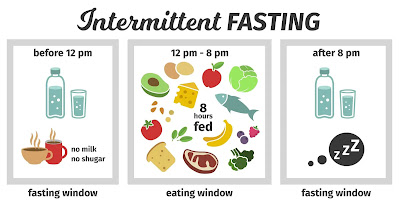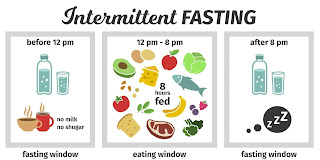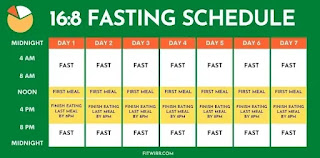How Much Weight Can You Lose in a Month with Intermittent Fasting?
Intermittent fasting (IF) is a type of diet that has gained immense popularity in recent years. It involves alternating between periods of fasting and eating. Many people use this diet to lose weight, and it has been shown to be effective. But how much weight can you actually lose in a month with intermittent fasting? In this article, we will explore the answer to that question and provide you with everything you need to know about intermittent fasting and its effects on weight loss.
Table of Contents
- What is Intermittent Fasting?
- How does Intermittent Fasting help with weight loss?
- Different Types of Intermittent Fasting
- How much weight can you lose in a month with Intermittent Fasting?
- Factors that Affect Weight Loss with Intermittent Fasting
- Tips for Successful Weight Loss with Intermittent Fasting
- Benefits of Intermittent Fasting beyond Weight Loss
- Potential Side Effects of Intermittent Fasting
- Who should avoid Intermittent Fasting?
- Conclusion
- FAQs
1. What is Intermittent Fasting?
Intermittent fasting is a dietary approach that involves alternating between periods of eating and fasting. There are several different ways to practice intermittent fasting, but the most common methods involve restricting food intake to a specific window of time each day or reducing overall calorie intake on certain days of the week.
2. How does Intermittent Fasting help with weight loss?
Intermittent fasting can help with weight loss by reducing overall calorie intake. By limiting the amount of time you have to eat each day or reducing your calorie intake on certain days, you create a calorie deficit that can lead to weight loss.
In addition to reducing calorie intake, intermittent fasting has also been shown to have other benefits that can contribute to weight loss, such as reducing insulin resistance and improving metabolic health.
3. Different Types of Intermittent Fasting
There are several different types of intermittent fasting, including:
- Time-restricted feeding: This involves limiting food intake to a specific window of time each day, usually 8-10 hours.
- Alternate-day fasting: This involves alternating between days of normal calorie intake and days of very low calorie intake (500 calories or less).
- 5:2 fasting: This involves eating normally for five days of the week and restricting calorie intake to 500-600 calories on two non-consecutive days.
4. How much weight can you lose in a month with Intermittent Fasting?
The amount of weight you can lose in a month with intermittent fasting depends on several factors, such as your starting weight, the type of fasting you are doing, and your overall calorie intake.
On average, people can expect to lose 1-2 pounds per week with intermittent fasting. So, in a month, you could potentially lose 4-8 pounds. However, this can vary widely from person to person.
5. Factors that Affect Weight Loss with Intermittent Fasting
There are several factors that can affect weight loss with intermittent fasting, including:
- Starting weight: The more weight you have to lose, the more you may be able to lose in a month.
- Type of fasting: Different types of fasting may lead to different rates of weight loss.
- Calorie intake: You still need to be in a calorie deficit to lose weight, even with intermittent fasting.
- Exercise: Regular exercise can help boost weight loss.
- Metabolic rate: Your metabolism can affect how quickly you lose weight.
6. Tips for Successful Weight Loss with Intermittent Fasting
Here are some tips to help you maximize your weight loss with intermittent fasting:
- Choose the right type of fasting for you: Experiment with different types of fasting to find what works best for you.
- Stay hydrated: Drink plenty of water during fasting periods to avoid dehydration.
- Eat healthy, nutritious foods: Make sure you are still getting enough nutrients during eating periods to support your weight loss goals.
- Be consistent: Stick to your fasting schedule to see the best results.
- Get enough sleep: Getting enough sleep is crucial for weight loss and overall health.
- Be patient: Weight loss with intermittent fasting may take time, so be patient and stick with it.
7. Benefits of Intermittent Fasting beyond Weight Loss
Intermittent fasting has been shown to have many other potential health benefits beyond weight loss, including:
- Improved metabolic health
- Reduced inflammation
- Lower risk of chronic diseases
- Improved brain function
- Increased lifespan
8. Potential Side Effects of Intermittent Fasting
While intermittent fasting is generally considered safe for most people, there are some potential side effects to be aware of, including:
- Hunger
- Fatigue
- Headaches
- Irritability
- Difficulty concentrating
9. Who should avoid Intermittent Fasting?
Intermittent fasting may not be appropriate for everyone, including:
- Pregnant or breastfeeding women
- People with a history of disordered eating
- People with certain medical conditions
If you are unsure if intermittent fasting is right for you, consult with a healthcare professional before starting.
10. Conclusion
Intermittent fasting can be an effective way to lose weight and improve overall health. While the amount of weight you can expect to lose in a month with intermittent fasting varies from person to person, following a consistent fasting schedule and making healthy food choices during eating periods can help you achieve your weight loss goals.
11. FAQs
- Is intermittent fasting safe?
- Can I drink coffee during fasting periods?
- How long does it take to see results with intermittent fasting?
- Can I exercise while intermittent fasting?
- Will I gain weight back after stopping intermittent fasting?







.png)


.jpeg)

0 Comments